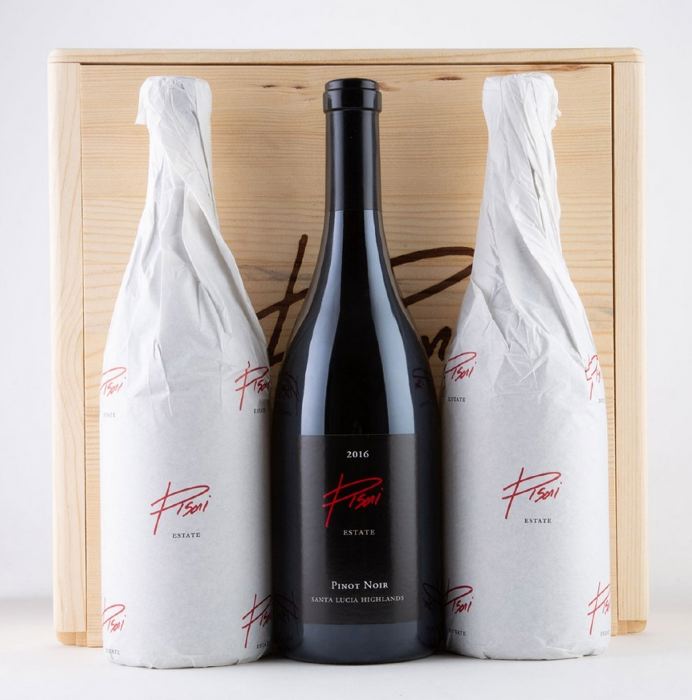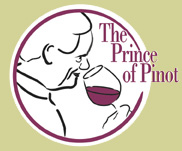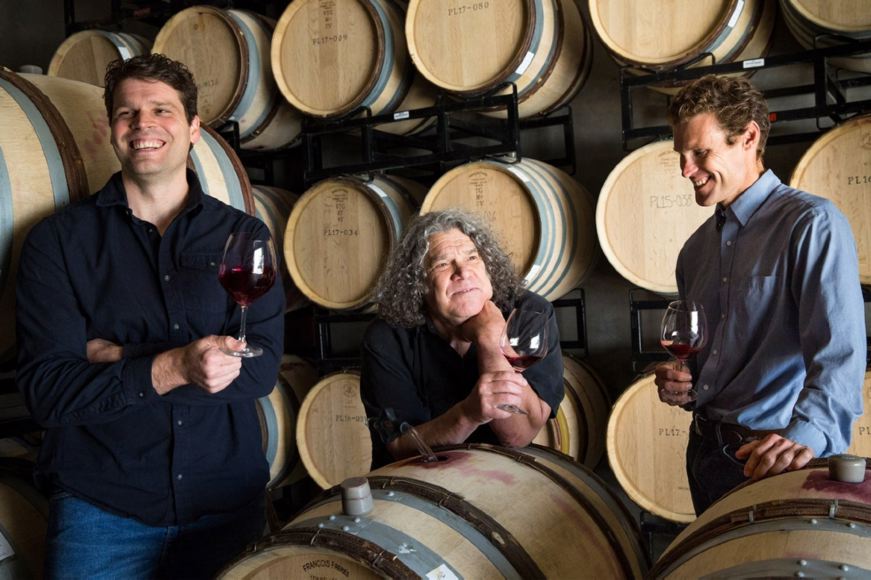Pisoni Vineyard Pinot Noir: An Iconic Wine Unlike Any Other
There are but a few iconic California Pinot Noirs. Rochioli West Block, Hanzell Ambassador’s 1953
Vineyard, Calera Jensen, and Mount Eden to name some of the few. Pisoni Vineyard Estate Pinot
Noir, known as “Pisoni, Pisoni,” is one of the elite members of this fraternity.
Gary Pisoni planted his first five acres of own-rooted vines in virgin soil at 1,300 feet elevation in the
Santa Lucia Highlands in 1982. The original vines are rumored to be suitcase cuttings from a famous
Domaine in Vosne-Romanée now referred to as the Pisoni selection or “clone.” Pisoni Vineyard fruit
quickly became highly prized in California, and it is not an overstatement to say Pisoni Vineyard put
Santa Lucia Highlands on the map.
The Pisoni Vineyard is one of the highest-elevation vineyards in the Santa Lucia Highlands. 36 acres
are planted with 30 individually farmed blocks. The soil is decomposed granite with high amounts of schist
and quartz. There is a significant cooling maritime influence that includes fog. The vines are
sustainably hand-farmed.
Gary’s sons Jeff (the winemaker) and Mark (the winegrower) created the Pisoni label, releasing the
first Pisoni Estate Vineyard Pinot Noir in 1998. The Pisoni family essentially produces one Pinot Noir
each year under this label. The wine is a blend of several blocks on the estate. Total production
ranges from 500 to 800 cases annually, depending on yield. (Left to right - Jeff, Gary and Mark).
A Pisoni Vineyard Estate Chardonnay, produced from vines that include initial plantings dating to 1982
and some blocks planted in 1999, is also offered.
I rarely write about a single wine, but the 2016 Pisoni Estate Pinot Noir deserves the honor.
In 2016, there was limited rainfall so that roots had to dig deep for moisture. The result was bold
tannins and intensity that required careful managing. The conditions in 2016 necessitated that the
Pisonis drop a considerable amount of fruit so as to not overly stress the vines. The resulting yields
were only about two tons per acre.
After harvest, Jeff’s top priority was watching the tannin evolution during fermentation. The fruit had
robust structure, so punch downs were restricted to the beginning and middle of the process with less
at the end. The wine was produced at a custom crush facility in Rohnert Park, CA.
Pisoni Estate Pinot Noir and Chardonnay are only sold by allocation to the winery’s mailing list on an
annual basis. Visit www.pisonivineyards.com. Since the demand for Pisoni Estate wines exceeds
production, new applicants to the winery’s mailing list may have to wait for a few vintages before being
offered wine. I wish more Pinot lovers could taste this wine.
Pisoni Estate wines are sent in a classy wood box encased in black styrofoam with each bottle
individually wrapped in tissue. The Pinot Noir is typically rich and powerful, but with well-tamed
tannins. The wine benefits from decanting for 30-60 minutes after opening. I reported on a vertical
tasting of Pisoni Estate Pinot Noir, 2004-2014, in 2017: www.princeofpinot.com/article/1903/.


2016 Pisoni Estate Santa Lucia Highlands Pinot Noir
14.1% alc., 615 cases, $90.
Released September 2018. Native yeast fermentation, 100% de-stemmed, aged 11 months
in French oak barrels, 63% new. Bottled unfined and unfiltered.
·
Dark garnet color in the
glass. Lovely aromas of boysenberry, blackberry, complimentary spice and tobacco. Fullbodied
with remarkable dark cherry and berry fruit intensity. Luscious and dreamy on the
palate with corralled, mellow tannins, and a deft touch of spicy oak. A bold expression of
Pinot Noir yet displaying lovable freshness. A distinctive wine that has no peer. The wine gains
countenance and class when tasted from an opened bottle several hours later.
Score: 96




